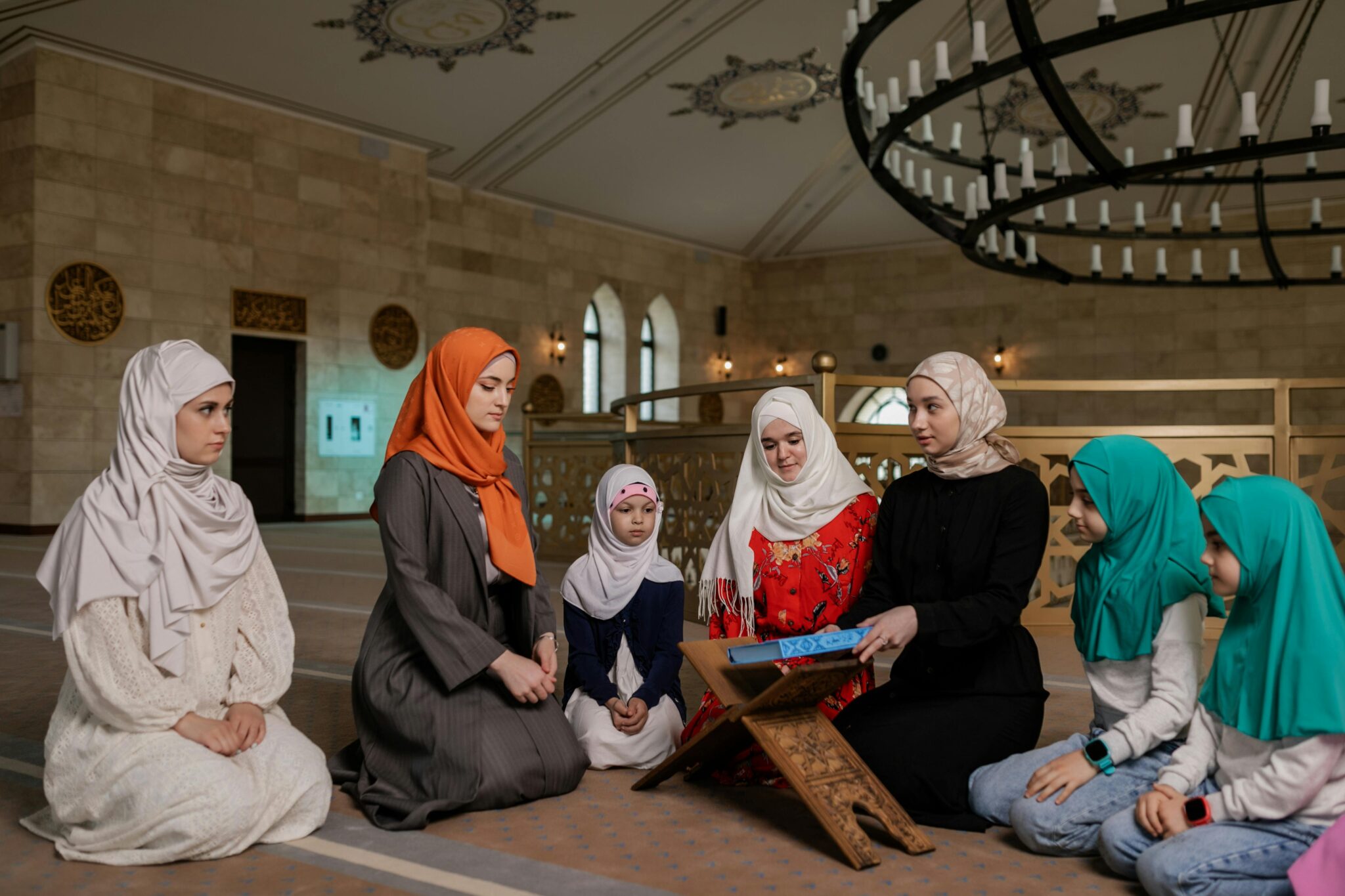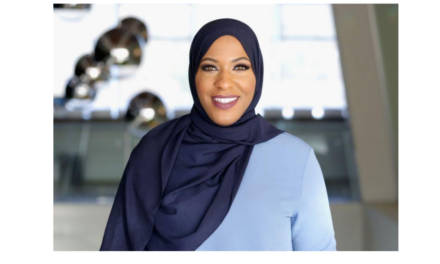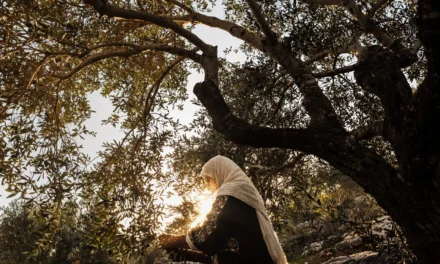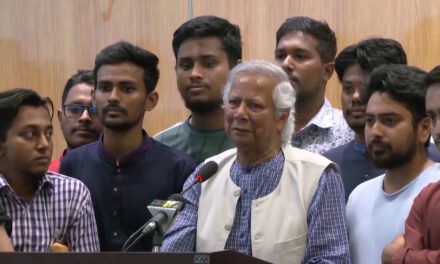Due to societal expectations and cultural restrictions that often have nothing to do with religion, many Muslim women feel they are confined to a domestic role and rarely attend Jummah (Friday) prayer at the mosque. Interpretations of Islamic teachings on women being allowed in mosques differ from scholar to scholar. Some emphasize the need for gender segregation while allowing a designated women’s area. Others believe women should focus more on praying at home. Other interpretations say women are an integral part of society and should be allowed to pray and practice alongside men.
Due to such varying interpretations and cultural expectations, women face unfair conditions within mosques. In some mosques in North America, women enter through the kitchen or an alleyway while the men enter through the front door.
And when they are allowed to attend prayer, Muslim women are often subjected to atrocious conditions. In some instances, the women’s section of the mosque is a cramped space lacking air conditioning and other necessary facilities. Sometimes, the women’s area of the mosque is closed off entirely. For example, The Islamic Center of Detroit keeps its women’s section locked except on Fridays and during the month of Ramadan.
“Me and my brother went to the mosque on a normal day. I tried opening the door multiple times, but it wouldn’t budge,” said a female mosque attendee who wishes to remain anonymous. “I felt ashamed and disappointed that my local mosque wants sisters to enter from the men’s entrance if they wish to pray on normal days.”
Portland, Ore. resident Fama Gedi has encountered similar barriers. While trying to attend prayer at a local mosque, she was confronted by a man who tried to physically bar her from entering.
“He said, ‘no you can’t go in…you are not welcome here. Women aren’t allowed at the masjid,’” Gedi recalled. “It was very heartbreaking.”
After bringing up the incident with mosque leadership, Gedi received apologies and was later told the mosque would be moving to a new location which would include a women’s section. But that proved to be inadequate. “[The women’s section at the new location] is such a small space,” she said. “If you don’t get there before khutbah starts, you’re outside.”
Gedi admits that the city’s other mosques handle this issue better. “[The mosque I go to now is] well maintained and the women are involved. We meet once a month, we talk about what we’re doing for our community,” she said. “Just knowing that an opportunity like that exists and allowing women to be in the leadership space… you’re not just a worshipper, you are part of the community.”
While Gedi was able to find a new mosque that fit her needs, other Muslim American women cannot access better facilities.
Unfair conditions not only hinder women’s ability to focus on prayer but make it difficult to build community with one another. Mosques are not only for prayer – they are the cornerstone for building community, making friendships, finding resources, providing refuge for the homeless, and so much more.
“Culture vs. religion is one major factor that has influenced women’s roles in masjids,” says Mahroz Murtaza, a volunteer at Houston’s Clear Lake Islamic Center, the area’s largest mosque. She said cultural norms tend to restrict women from attending and participating in mosque activities and events, therefore, the majority of the mosque’s events, prayer space, and leadership positions are male-centric.
However, she acknowledged that this is not always the case, and that there has been a shift in recent years. “Leaders are now acknowledging the positive impact on women’s roles in masjids and are making efforts to offer bigger prayer spaces, educational programs, safe places, resources, etc.,” she said.
This shift would be in keeping with the role of women throughout Islamic history. At the time of Prophet Muhammad (Sallu Allahu ‘alayhi wa sallam), women had access to mosques, would pray in their assigned section, and were active participants in Islamic society. Mosques were brimming with study circles and intellectual discourse in events that were attended by both men and women. It was known that the Prophet would also have a designated time each week to teach women exclusively. During this era, they would also attend the five daily prayers at the mosque . As the hadith states, “Do not prevent the female servants of God from going to the mosque” (Muslim, Abu Dawud).
As scholars and teachers, women were pioneers in education and possess vast amounts of Islamic knowledge. Uns bint Abdulkarīm bin Ahmad al-Lakhmī al-Nastrāwī, wife of the 15th century scholar Ibn Hajr al-‘Asqalāni, was a scholar herself, and regularly gave public lectures at the Great Mosque of ‘Amr ibn al-‘Ās in Egypt. Famous for her narration and transmission of the Hadīth, she was one of the only women allowed to give public lectures and her lectures on the Hadīth were so profound that they were attended by renowned scholars of the time.
And famously, it was at a mosque that a female congregant interjected and questioned Caliph Omar al-Khattab (radi Allahu ‘anhu) about his knowledge of fiqh of mehr, citing Quran 4:20. Upon hearing this, he stood up again, and corrected himself (Ibn Kathir, vol.I, p.468).
“Prophet Muhammad included women in the community,” said Asmah Rafati, a participant and volunteer at San Antonio’s Muslim Children Education and Civic Center (MCECC). “They were not excluded, seen as a burden, or meant to be hidden. They were an active part of society…This influenced women’s roles at the masjid by allowing women to be involved and also [to] contribute in ways to enhance the Muslim community.”
Despite some struggles, improvements are being made as more Muslim women get involved in local mosques. According to the Pew Research Center, in 2020, women represented more than a quarter of participants at 21% of U.S. mosques compared to just 14% in 2011. Women are also more involved with community and social services, education, and youth programs. Many mosques have implemented women-specific activities and events where women and girls can actively participate in their community and build healthy relationships with other women in their community.
“I’m regularly praying [at the mosque]; [I attend] Jummah prayers, Friday night prayers, and [other] the events they host,” Rafati said. “It’s just the environment itself, the opportunity to talk to people, meet new people, and be involved with my masjid community that makes it meaningful.”
But the responsibility for creating female-friendly spaces within the mosque does not fall on women alone. Mosque leadership must provide the resources that will allow women to comfortably practice their faith. For example, Dar AlNoor Islamic Community Center in Manassas, Va., offers a dedicated women’s section on the top floor with a large bathroom. The Jaffari Community Centre in Vaughan, Ontario also offers a large, well-maintained women’s section along with a religious advisor. The center also offers readings and literature on personal development, spiritual growth, and women’s issues.
These needs are the bare minimum that every woman attending a mosque should be provided with. With more women on mosque boards and in leadership roles, women should finally be given an avenue to confront their grievances and have their voice heard.
“Many times, the sisters’ prayer space seems to be an afterthought. . . I’ve seen many spaces where sisters have to walk through the kitchen or an alleyway to get to prayer,” said Lubna Shaikh, executive director at the West Valley Muslim Association (WVMA) in Los Gatos, Calif. “I’d love to see for all masjids that sisters have a proper prayer area with ease of accessibility. . . that is in line with Islam and appropriate to our reality as Muslims in America.”
Lubna is on a mission to make the WVMA a space to grow spiritually, socially, and personally. “My role is to help take the masjid to the next level in terms of being a space of intentional and holistic growth for the community.” Among these improvements are unique initiatives for adults and children including theater, improv, and a stitching club.
Some of the mosque’s women-centered programs include halaqas, fitness classes, the empowerment project, and parenting workshops. Lubna also emphasizes the importance of having an integrated mosque where both men and women participate in events equally. “It makes me happy to share that we don’t need to do a lot of sister-only programming as there is a lot of integration and sisters are very much in the forefront of planning, executing, and attending all events.”
Women’s roles in mosques must go beyond women’s sections. They are pivotal to the functioning of society; women are the backbone of their communities and their households. Women have tremendous amounts of knowledge to offer and should be recognized for their efforts. They are teachers, scholars, community leaders, mothers, and sisters. By allowing women the freedom and space to be involved in their mosques and to practice their faith, we are setting the precedent for future Muslim women to feel uplifted, loved, and supported wholeheartedly.
By Mommina Tarar, a freelance reporter who covers culture, faith, travel, and intersectional social/racial justice.













